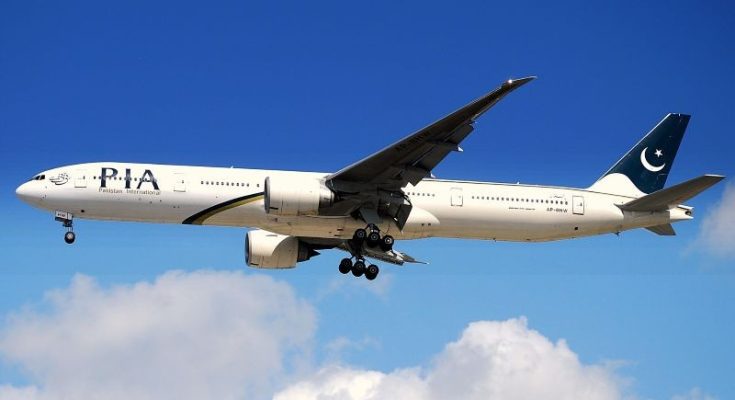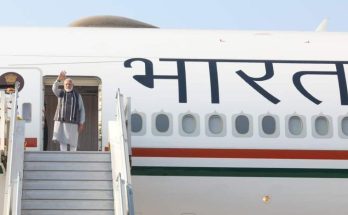#India#Pakistan#Pahalgam massacre#Islamabad#Pakistan Flights#Kashmir Terror Attack#PM Modi
New Delhi/IBNS-CMEDIA: Six days after Pakistan decided to shut its airspace to all flights operated by Indian carriers, New Delhi has announced a reciprocal move by shutting down its airspace to all Pakistan-owned and operated planes, media reports said.
The move comes amid heightened tensions between India and Pakistan over the deadly Pahalgam terror attack, in which 26 civilians were killed.
The terror attack was religiously motivated and came days after a provocative speech by Pakistan’s army chief General Asim Munir.
Amid escalating tension, Islamabad is fearing military action by India and hence, flights from Pakistan were in any case avoiding Indian airspace.
However, with an official announcement by New Delhi, Pakistani flights shall not be permitted in the Indian airspace even if they wish to.
Flights from Pakistan, scheduled for destinations in Southeast Asia and Oceania, will now have to circumnavigate India.
This will put an immense burden on the already cash-strapped Pakistani carriers, and will also increase travel time considerably.
Meanwhile, Pakistan Army resorted to unprovoked firing at multiple locations along the Line of Control (LoC) in Jammu and Kashmir on Tuesday, escalating tension in the region.
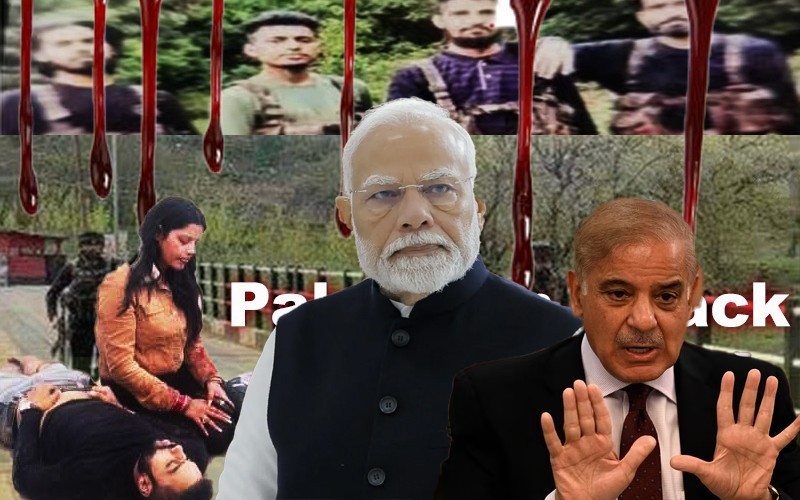 The Pahalgam terror attack left 26 civilians, mostly Hindu tourists, dead on April 22.
The Pahalgam terror attack left 26 civilians, mostly Hindu tourists, dead on April 22.
This was the sixth consecutive day when Pakistan resorted to cross-border firing.
A defence spokesman told news agency UNI that during the night of April 29-30, Pakistan Army posts initiated unprovoked small-arms fire across the Line of Control opposite the Naushera, Sunderbani and Akhnoor sectors in the Union Territory of Jammu and Kashmir.
He said that unprovoked small arms firing by the Pakistan Army was also reported from their posts across the Line of Control in Baramulla and Kupwara districts of the Kashmir division as well as across the International Border in the Pargwal Sector.
“Indian Army troops responded swiftly and proportionately,” he told the news agency.
Pakistan violated the ceasefire in the Ramgarh sector of Samba district and Pargwal area of Akhnoor in Jammu.
No casualties have been reported on the Indian side.
Modi Gives ‘Full Freedom’ To Forces
Prime Minister Narendra Modi has given the armed forces ‘complete freedom to decide on the mode, targets, and timing’ of India’s military response to the Pahalgam terror attack, which left 26 civilians dead, media reports said, citing sources on Tuesday night.
Amid escalating tension with Pakistan, PM Modi took the decision at a meeting with Defence Minister Rajnath Singh, National Security Advisor Ajit Doval, and Chief of Defence Staff General Anil Chauhan.
Amid escalating tension with Pakistan, PM Modi took the decision at a meeting with Defence Minister Rajnath Singh, National Security Advisor Ajit Doval, and Chief of Defence Staff General Anil Chauhan.
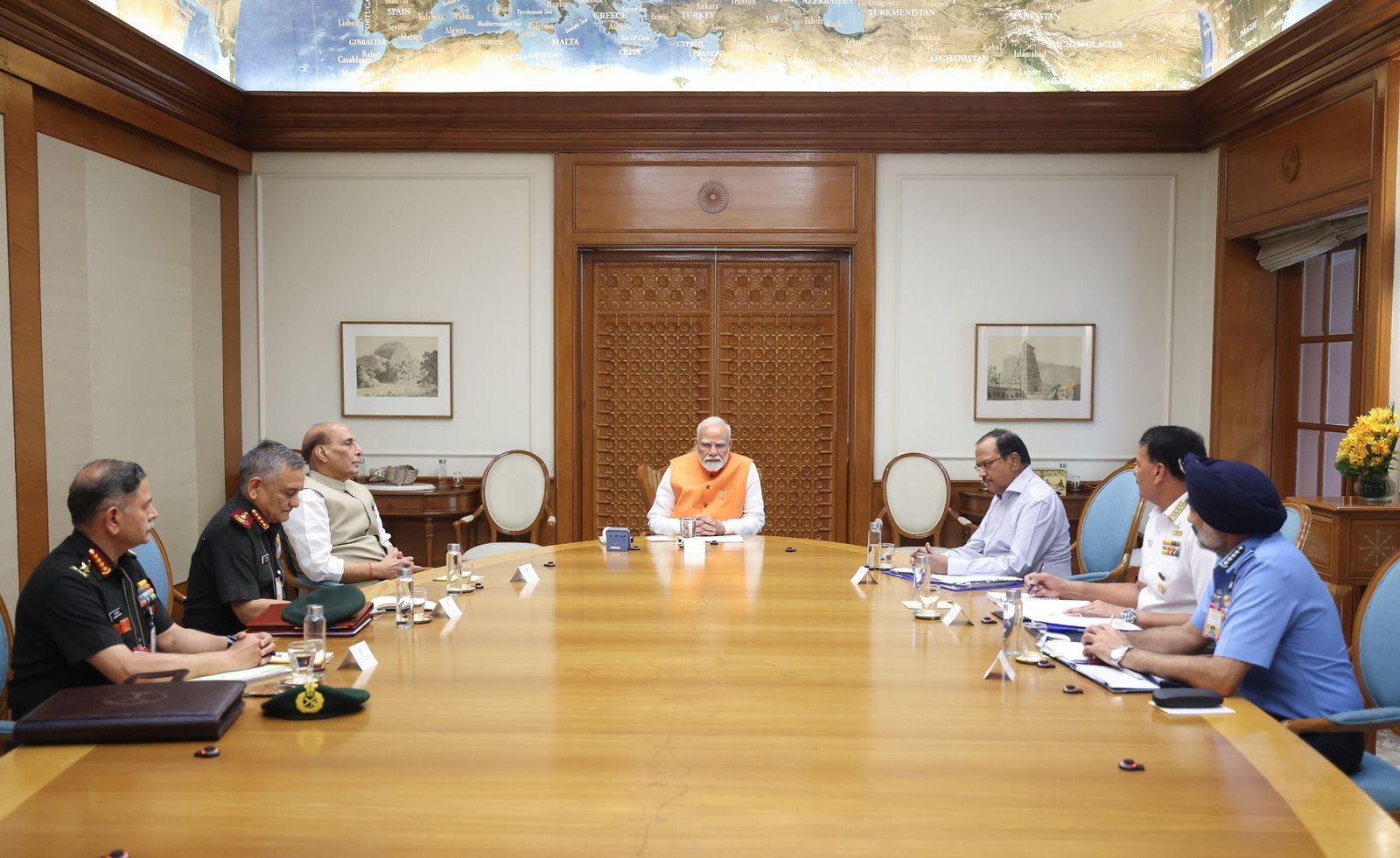 PM chaired a meeting on security in New Delhi on April 29, 2025. Photo: PIB
PM chaired a meeting on security in New Delhi on April 29, 2025. Photo: PIB
According to NDTV’s sources, the Prime Minister reaffirmed that it is ‘our national resolve to deal a crushing blow to terrorism’ and that he has ‘complete faith and confidence’ in the Indian military.
The PM’s message, sources explained, gives a green light to military action against the terrorists who killed 26 people, mostly Hindu tourists, in Pahalgam’s Baisaran, in the worst possible target on civilians since the Pulwama attack in February 2019.
After the Pulwama attack, India conducted precision air strikes on terrorist camps in Pakistan’s Balakot. The camps were run by the banned terror group Jaish-e-Mohammed with help from the Pakistan Army.
Pahalgam Attack
On April 22, the terrorists- belonging to The Resistance Front (TRF), an offshoot of Pakistan-based Lashkar-e-Taiba (LeT)- asked the victims (tourists visiting the scenic Pahalgam in Kashmir) to chant Islamic verses (kalma) and made them pull down their pants to be sure of their their non-Muslim religious identities (read circumcision) before gunning them down in front of their families, including wives, children and daughters.
The massacre triggered nationwide outrage and escalated India-Pakistan tensions as New Delhi vowed to avenge the killings.
In an immediate response India suspended the landmark Indus River water-sharing treaty and closed the Attari-Wagah road border which acts a lifeline of Indo-Pak trade and people-to-people ties, besides expelling diplomats, downsizing high commissions and issuing a 48-hour deadline to Pakistani visa holders present in India to leave.
Pakistan Plans To Challenge India’s Punitive Action
Seeking some legal actions against New Delhi’s move to place the Indus Waters Treaty in “abeyance”, Pakistan is planning to take India to the international court in a desperate attempt to find some reprieve, media reports said.
The Indian Government last week suspended the decades-old Indus Waters Treaty with Pakistan indefinitely as a part of some strict measures taken against Islamabad over the “cross-border linkages” that emerged during the investigation into the Pahalgam terror attack.
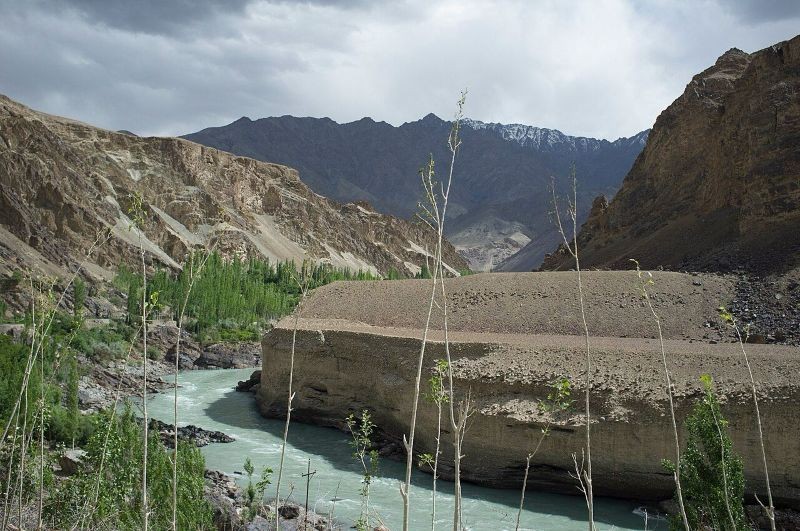 A view of the Indus River near Leh. Photo courtesy: Avani Tanya/Wikipedia
A view of the Indus River near Leh. Photo courtesy: Avani Tanya/Wikipedia
Stung by the move, Pakistan warned that “any attempt to stop or divert the flow of water belonging to Pakistan will be considered as an act of war”.
Staring at a water crisis, Pakistan, which is already severely parched, Minister of State for Law and Justice Aqeel Malik told Reuters on Monday that Islamabad is working on plans for at least three different legal options, including raising the issue at the World Bank, the treaty’s facilitator.
Islamabad is also approaching the International Court of Justice in Hague, where it could allege that India has violated the 1969 Vienna Convention on the Law of Treaties.

